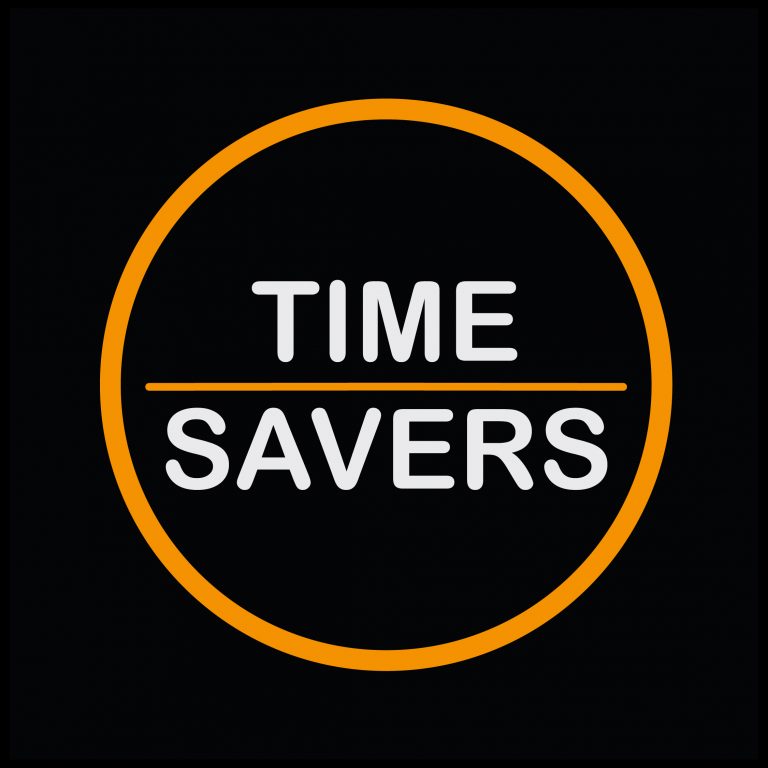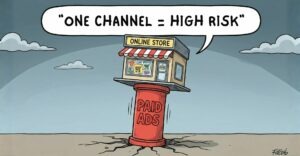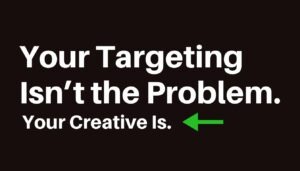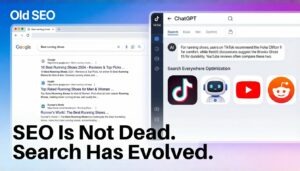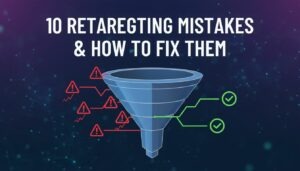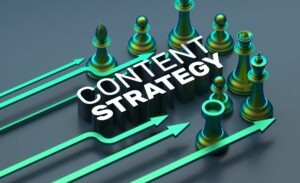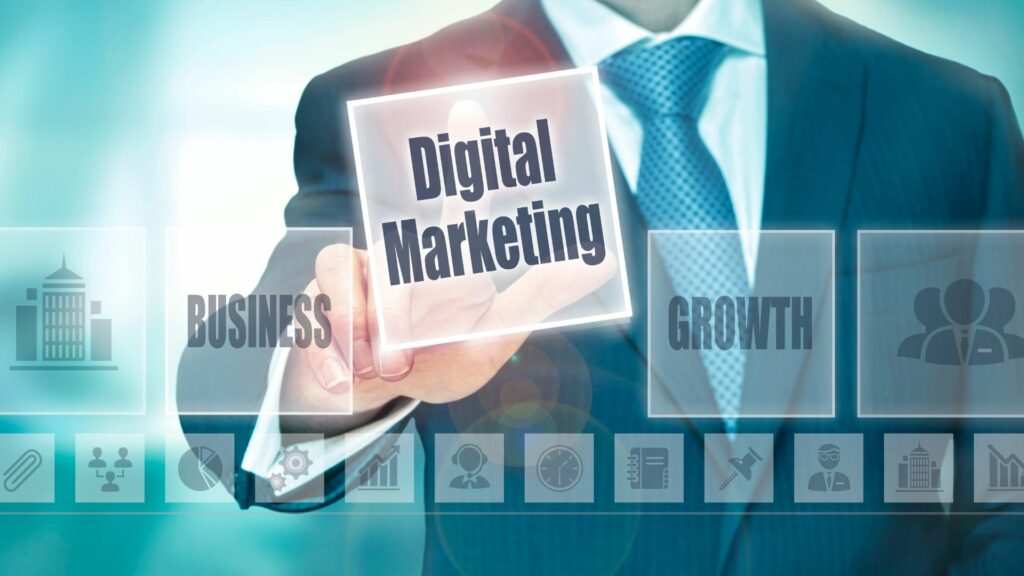
Let’s be honest, when most people hear “digital marketing agency,” they imagine a guy in skinny jeans snapping Instagram stories of latte art.
That might be fine for a trendy café, but real digital marketing goes way beyond pretty pictures and hashtags. And there are specific strategies that every digital marketing agency should follow if you want your business to grow.
Because today, online visibility can make or break you. Whether you’re running an eCommerce store, managing a local service business, or trying to grow a B2B company, you need someone who knows how to attract customers, boost revenue, and build your brand online.
But here’s the thing, most people have no clue what digital marketing agencies do all day.
Sure, some of us will make your latte art look Instagram-worthy, however that leaves the big question unanswered…what exactly do agencies offer when you’re not watching? What services do you get when you hire a digital marketing partner?
This guide breaks down every core service a real digital marketing agency provides, and more importantly, how each one fits into making your business more successful. By the time you’re done reading, you’ll know exactly what to expect when hiring an agency and which services will give you the biggest bang for your buck.

1. Strategic Planning & Digital Marketing Consulting
Would you rather gamble your money or invest it? The answer is pretty obvious. But this is a step that most business owners (and some agencies) miss.
Before any good agency touches a single ad or writes one piece of content, it’s important to become obsessed with your business. And we mean obsessed.
They’re the ones asking uncomfortable questions like:
- “What’s your actual customer acquisition cost right now?”
- “Which marketing channel brought in your last 10 customers?”
- “What’s your average customer lifetime value?”
- “How long does it typically take someone to go from first hearing about you to buying?”
In addition, they’ll dig through your Google Analytics like it’s a crime scene, stalk your competitors (legally, of course), and build customer personas that go way beyond “Sarah, 34, likes yoga.” The goal is creating a marketing strategy that doesn’t rely on the classic “let’s just post more on social media” approach.
And that’s the whole point. Strategy is very important. And it’s always step one. Here’s what goes into a customized digital marketing plan:
- Competitor analysis: What are your competitors doing that’s working? Good agencies don’t just look at their pretty websites, they dig into their ad spend, keyword targets, and content strategy to find gaps you can exploit.
- Platform recommendations: Not every business needs to be on TikTok. Agencies figure out where your actual customers spend time online and focus your efforts there instead of spreading you thin across every platform.
- Budget allocation: How much should go to Google Ads versus Facebook? What about SEO versus email marketing? Agencies use data to split your budget based on what delivers the best ROI for your specific business.
- Funnel planning: Mapping out how someone goes from never hearing about you (top of funnel) to becoming a paying customer (bottom of funnel) and every step in between so nothing falls through the cracks.
- Channel integration: Making sure your paid ads, social media, SEO, and email work together instead of against each other, like having your email campaigns support your Google Ads rather than competing for the same conversions.
Why it matters: Most businesses are throwing marketing spaghetti at the wall to see what sticks. Good agencies prefer to aim first. Because without strategy, you’re basically gambling with your marketing budget instead of investing it.
If your agency doesn’t have a strategy in place before they start running ads or posting content, it’s time to find a new one.
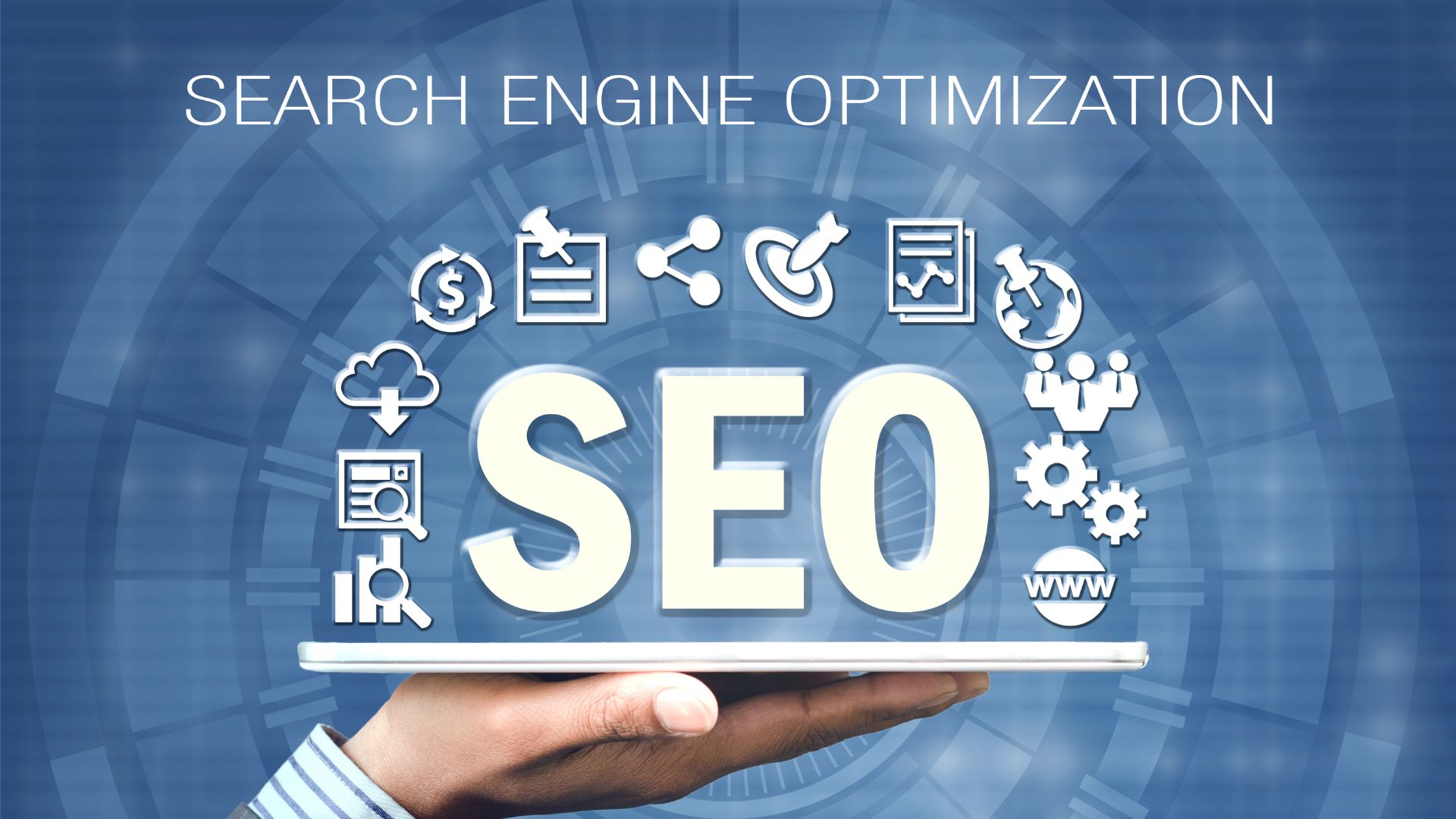
2. Search Engine Optimization (SEO): Showing Up Where People Search
Think about how you use Google. You type a question or product name and you usually click one of the top results, right? Now think hard about this for a second…when’s the last time you scrolled to page 2?
Exactly.
68% of online experiences begin with a search engine, and only 0.78% of Google searchers click on results from the second page
SEO is the process of getting your website to show up in those top results when people search for what you sell. But here’s what most people don’t realize, you don’t do this by tricking Google. Instead, you need to become the obvious answer to your customers’ questions. This is where a solid digital marketing agency comes in.
Here’s how the good ones go about doing it:
- Keyword research: What are people typing into Google when they need your product or service? Good agencies dig beyond obvious terms to find the searches your competitors are missing.
- Website optimization: Agencies make sure Google can understand what your website is about. This means updating your content, images, and site structure so search engines don’t get confused trying to figure out if you sell tacos or tax advice.
- Technical fixes: Nobody waits for slow websites anymore. Agencies make sure your site loads fast, works perfectly on mobile, and doesn’t break when someone tries to navigate it. Because what’s the point of ranking #1 if people leave immediately?
- Content creation: Agencies are there to write blog posts, landing pages, and guides that answer the questions your customers are asking Google. Forget about bland “industry trends”…it’s important to create real, helpful content that solves problems.
- Quality backlinks: This involves getting other reputable websites to link to yours, which tells Google you’re trustworthy and relevant. Think of it like digital word-of-mouth recommendations.
- Local SEO & Google Business management: For local businesses, agencies optimize your Google Business Profile, manage reviews, ensure your business appears in “near me” searches, and make sure your location shows up when people search for services in your area. Because showing up in local search results can be the difference between a packed restaurant and empty tables.
So, what does this all mean for you? SEO helps your business get found organically without paying for every single click. It’s a long-term investment that builds trust and visibility and unlike paid ads, the traffic doesn’t stop the moment you stop paying.
Speaking of paid ads though…
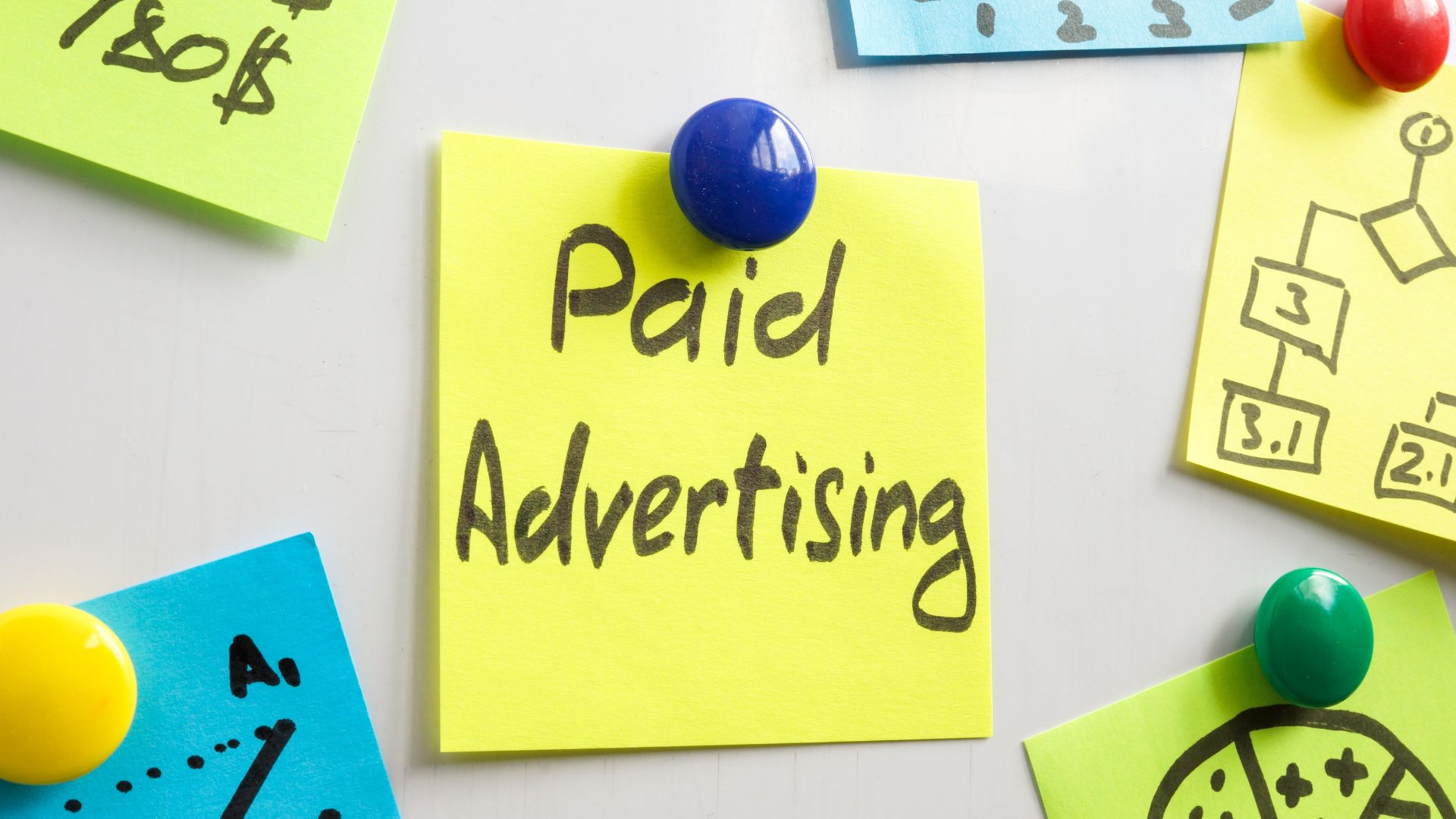
3. Paid Ads (PPC Campaign Management): Your Digital Money Machine (When Done Right)
While SEO is playing the long game, paid advertising is about getting results now. Like, today. This minute.
Good agencies run pay-per-click campaigns across the platforms where your customers hang out such as Google Ads for search (Google Ads can increase brand awareness by up to 80%!), display, shopping, and YouTube, Meta Ads for Facebook and Instagram, plus LinkedIn Ads for B2B and TikTok Ads if your Shop or audience is there.
But here’s the thing…most businesses think you just throw money at ads and customers magically appear. And that’s a great strategy! (If you want to burn through your budget in a week with nothing to show for it).
Real PPC management is strategic. Here’s what agencies do:
- Target audience and keyword selection: It’s important to find the exact people who are ready to buy what you’re selling, not just anyone with a pulse and a credit card.
- Ad copywriting and design: We create ads that make people stop scrolling and click, instead of ads that look like every other boring business trying to “increase brand awareness.”
- A/B testing: One major piece of the puzzle is testing different versions of ads and landing pages to see what works best, because what you think will work and what works are usually two completely different things.
- Budget management and bid strategies: We’re good stewards of your money. We do this by making sure your money goes toward the clicks that convert, not just the clicks that look impressive in reports.
- Conversion tracking and ROAS optimization: We’ll help you know exactly which ads brought in actual customers and how much revenue each dollar of ad spend generated.
Whether you need leads, product sales, or event signups, paid ads let you scale fast and measure performance in real-time. No waiting six months to see if it’s working.
Why this matters: Done right, paid ads are like having a controllable faucet of customers. Turn it up when you need more business, dial it back when you’re swamped. And unlike traditional advertising, you know exactly what’s working and what isn’t.
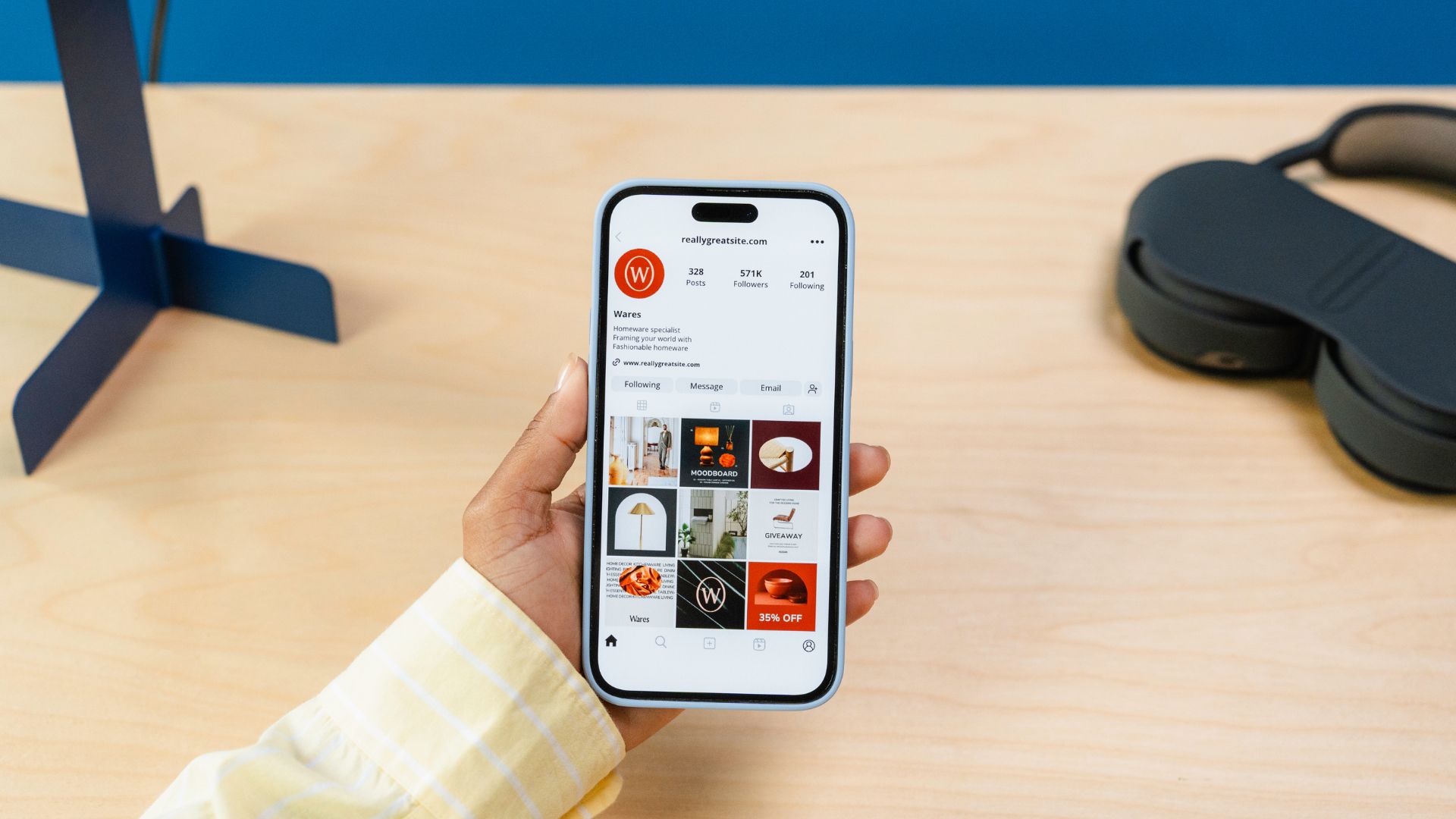
4. Social Media: Building Your Digital Personality
While paid ads are great for driving conversions, organic social media is where you build relationships with your customers. It’s the difference between a pushy salesperson and that friend who always knows the best restaurants.
Good agencies help businesses stay consistent and engaging across platforms like Instagram, Facebook, TikTok, LinkedIn, and Pinterest. But here’s the key…they don’t just post pretty pictures and pray for engagement.
This is what they do instead:
- Content planning and calendars: We map out what to post and when, so you’re not scrambling at 9 PM trying to think of something clever to say about your product.
- Post creation: Whether it’s reels that get watched, stories that people engage with, carousels that educate, or static posts that convert – each format serves a specific purpose in your overall strategy.
- Brand voice development: It’s important to write captions that sound like your business has an actual personality, not like a robot trying to be relatable. You know the difference.
- Community management: Responding to comments, DMs, and reviews in a way that makes people feel heard instead of ignored. This is where customer service meets marketing.
- Strategic engagement: Growing your followers and reach through genuine interaction, not buying fake followers or using sketchy growth tactics that make you look desperate.
Why this matters: Social media should be social. And what does that mean? Connection. It’s where people decide if they trust you enough to buy from you, and where your brand personality either shines or falls flat. Get it right, and you have a community of loyal customers. Get it wrong, and you’re just another business talking to yourself online.
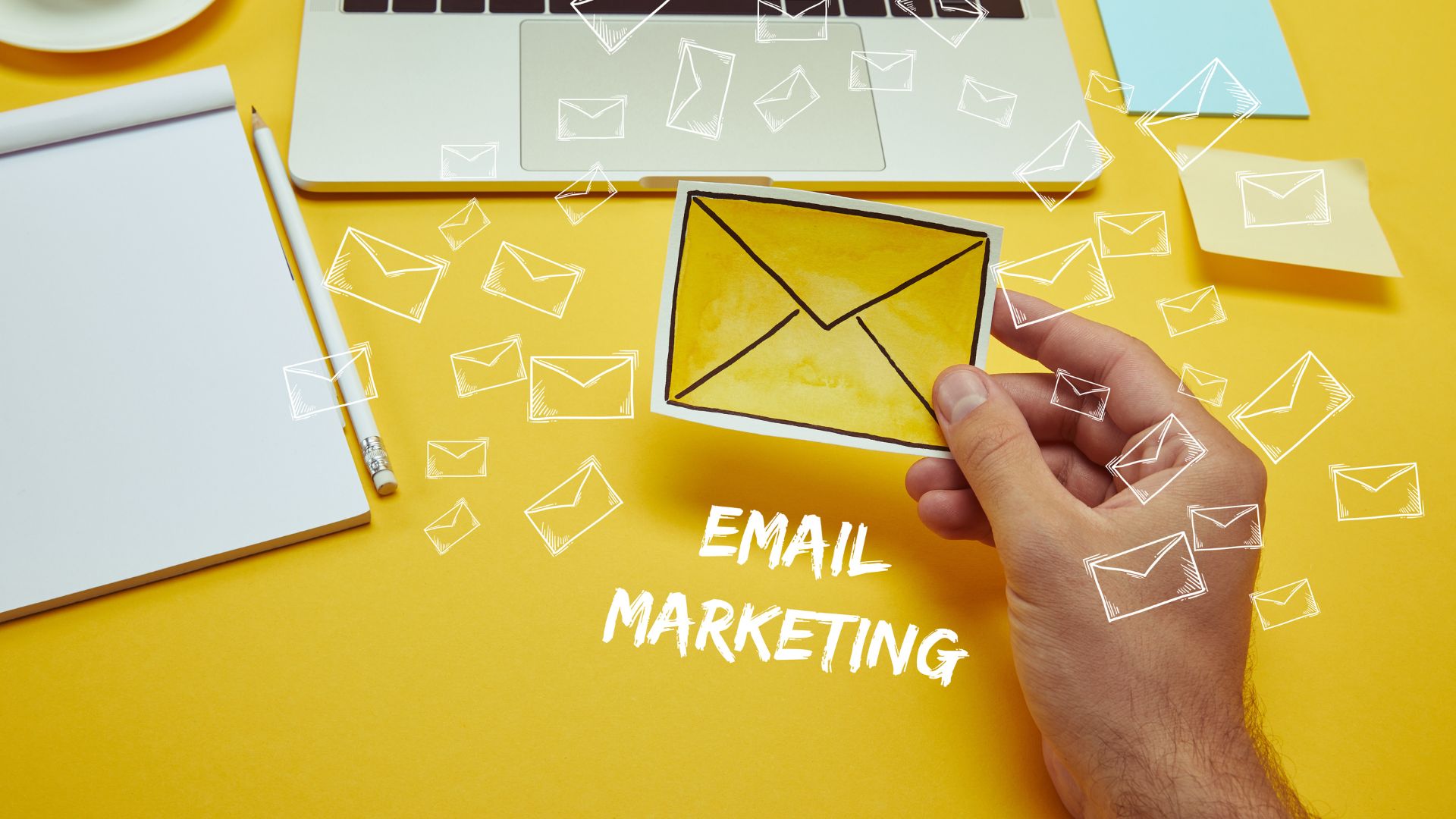
5. Email Marketing and Automation: The Goldmine Everyone Ignores
Once your traffic and social media start bringing in attention, it’s time to nurture those leads instead of letting them disappear into the digital black hole. Because here’s a harsh reality…most people aren’t ready to buy the first time they visit your website.
Email marketing is like having a really good salesperson who never sleeps, never takes a day off, and never forgets to follow up. Here’s how agencies make that magic happen:
- Automated email flows: Welcome sequences that stick, cart abandonment emails that bring people back, and follow-up sequences that turn one-time buyers into repeat customers. All happening automatically while you focus on running your business.
- Newsletter creation: Emails that people look forward to reading instead of immediately deleting. Think valuable content mixed with subtle sales pitches, not desperate “BUY NOW” screaming.
- List segmentation: Different messages for different types of customers because someone who bought from you last week needs different emails than someone who just signed up for your newsletter.
- A/B testing: Different subject lines, send times, and content to see what gets opened and what gets ignored.
- Platform integration: Your email system connects with your CRM tools and eCommerce platform so everything talks to each other instead of living in separate silos.
In addition, agencies use tools like Klaviyo, Mailchimp, and ActiveCampaign to build smart email systems that convert.
Here’s a quick breakdown of those email platforms:
Klaviyo is the eCommerce powerhouse. It connects directly to your Shopify or WooCommerce store and automatically tracks what people buy, browse, and abandon in their cart. Perfect for product-based businesses that want sophisticated automation based on customer behavior.
Mailchimp is the user-friendly option that’s great for beginners and small businesses. Easy to set up, decent templates, and won’t overwhelm you with features you don’t need. Best for newsletters and basic automation without the complexity.
ActiveCampaign is the Swiss Army knife…powerful automation builder, great for service businesses and B2B companies that need complex nurture sequences. It’s like having a CRM and email platform rolled into one, perfect for longer sales cycles.
Why this matters: Email marketing has an average of 3,600% ROI…that’s $36 back for every $1 spent. It’s especially powerful for eCommerce and service businesses because it’s the only marketing channel you own. Social media platforms can disappear tomorrow, but your email list is yours forever.

6. Content & Copywriting: Words That Work
No matter how great your product is or how pretty your website looks, you need words that sell. And we’re not talking about fancy corporate jargon that sounds impressive but says nothing.
Good agencies know that every single word on your website, in your ads, and in your emails have one job…move your customer closer to buying from you. Don’t worry, we’re really not trying to sell you anything here. Maybe.
Regardless, here’s what that looks like in practice:
- Blog writing: SEO-optimized content that ranks on Google AND provides real value to readers, not just keyword-stuffed fluff that makes people click away immediately.
- Website copy: Clear, compelling text that explains what you do and why someone should care, instead of the vague corporate speak that makes visitors confused about what you’re selling.
- Product descriptions: Copy that sells the dream and the solution, not just a boring list of features that puts people to sleep.
- Ad copy: Headlines and descriptions that make people stop scrolling and click, instead of blending into the endless stream of forgettable ads.
- Video scripts and social captions: Content that matches your brand voice and gets people engaged, whether they’re watching, reading, or just scrolling past.
Every word has a purpose…to help you rank higher on Google, convert more visitors into customers, or connect with your audience on a deeper level.
Why this matters: Copy is the bridge between your product and your customer’s decision to buy. Great copy builds trust, answers objections, and makes the sale feel like the obvious next step. Bad copy? That’s how you end up with a beautiful website that nobody buys from.

7. Web Design: Your Digital Storefront
Your website is like your business’s front door. If it’s broken, slow, or confusing, people leave before they even see what you’re selling. And unlike a physical storefront, you’ve got about 3 seconds to make a good first impression before they click away…maybe forever.
Here’s what good agencies build:
- Website redesigns and new builds: Whether you need a complete overhaul or you’re starting from scratch, agencies work with different platforms depending on your needs. WordPress is perfect for content-heavy sites and blogs with tons of customization options. Webflow is ideal for businesses that want custom design without custom code…think beautiful, unique sites that still function perfectly. Shopify is the go-to for eCommerce stores that need to handle products, inventory, and payments without breaking.
- Fast-loading websites: Because nobody waits for slow sites anymore. If your page takes more than 3 seconds to load, you’ve already lost half your visitors to your faster competitors.
- Mobile-first design: Everyone’s browsing on their phone these days, so if your site looks terrible on mobile or is impossible to navigate with thumbs, you’re basically telling 60% of your potential customers to shop elsewhere.
- Converting landing pages: Pages specifically designed to turn visitors into leads or customers, not just pretty pages that win design awards but don’t make you any money.
- User experiences that make sense: Clear navigation, obvious buttons, and a logical flow that guides people toward buying instead of confusing them into leaving.
Why this matters: A beautiful website that doesn’t convert visitors into customers is just expensive digital art. Good agencies build websites that work…meaning they help you make money, not just look impressive in your portfolio.

8. Analytics: The Truth Teller
We are in the age of data. Meta recently unveiled Andromeda, a powerful AI system that helps process and rank ads from tens of millions of possibilities, improving how Facebook handles ad auctions at massive scale, Google handles 8.5 billion searches daily, and TikTok’s algorithm analyzes billions of user interactions to decide what video you see next. What does this mean for you and agencies?
It’s on us to use this data (in a responsible way, of course).
Agencies don’t just launch campaigns and cross their fingers hoping something works. At least the good ones don’t. Instead, they track, measure, and optimize everything because data doesn’t lie…but your gut feelings about what’s working usually do.
Here’s how they turn your marketing into a science instead of a guessing game:
Google Analytics 4 setup: Why is GA4 important? It creates clear visibility into where your traffic comes from, what people do on your site, and which pages make them leave immediately.
Conversion tracking: How do you know if ads are working or not? With proper conversion tracking! Exact knowledge of which ads, forms, and campaigns bring in actual customers versus which ones just look good on paper but don’t generate revenue.
Platform tracking tools: What’s with all these tracking pixels? Facebook Pixel, LinkedIn Insight Tag, and other tracking codes follow your customers’ journey so you know which touchpoints influence their decision to buy.
Monthly performance reports: What do monthly reports show? Clear breakdowns of what’s working, what’s not, and what needs to change, presented in plain English, not confusing charts that require a marketing degree to understand.
Conversion rate optimization: Why test landing pages? Tests and tweaks on your landing pages can help you get more visitors to take action instead of just browsing and leaving.
Why this matters: With accurate data, you can stop making marketing decisions based on hunches and start making choices that drive measurable ROI. You’ll know exactly which dollar of ad spend brought in which customer, and you can double down on what works while cutting what doesn’t.

9. Specialized Services: Going Beyond the Basics Based on Industry or Goals
Some agencies go beyond the standard playbook and offer specialized services based on what your industry needs. Because cookie-cutter marketing approaches work about as well as one-size-fits-all clothing.
Here’s what agencies might offer depending on your business:
Influencer marketing: Agencies will help find creators who align with your brand and have audiences that convert, not just impressive follower counts that look good on paper.
Amazon and marketplace management: They’ll help optimize your product listings, manage inventory, and navigate Amazon’s complex advertising platform so you don’t get buried on page 47 of search results.
Affiliate marketing programs: They set up systems where other people promote your products and only get paid when they bring in sales, creating a win-win situation.
Video marketing & production: Video gets 1200% more shares than text and images combined. Agencies create everything from short-form content for TikTok and Instagram Reels to long-form YouTube videos, product demos, testimonials, and video ad campaigns. They handle scripting, filming, editing, and distribution across platforms – because video isn’t just “nice to have” anymore, it’s essential for staying competitive.
SMS Marketing: With 98% open rates and responses within minutes, text marketing is incredibly effective when done right. Agencies set up SMS campaigns for order updates, abandoned cart recovery, flash sales, and appointment reminders. They handle compliance, timing, and segmentation so your messages feel helpful instead of spammy – because nobody wants to be the business that gets blocked.
Funnel building & Conversion Rate Optimization (CRO): Agencies map out and build complete customer journeys from first click to final purchase, then optimize every step to reduce drop-offs. This includes creating lead magnets, designing landing pages for each funnel stage, setting up email sequences, and A/B testing everything from headlines to button colors. They’ll identify where people are leaving your funnel and fix those leaks because a 2% improvement in conversion rate can double your revenue without spending more on ads.
Online reputation management: They can also help monitor and manage your online reputation so one angry customer doesn’t tank your entire business with a viral bad review.
Brand identity development: Last, they can help create logos, choose colors, and define your brand voice so you’re memorable instead of just another forgettable business in your industry.
Why this matters: Every business has unique needs, and the best agencies adapt their services accordingly instead of trying to force every client into the same generic package. Your restaurant needs different marketing than your law firm, and good agencies get that.
So, What Does This All Mean for You?
Digital marketing agencies do way more than just “run some ads” or “post pretty pictures on Instagram.” They’re a full support system for your online growth, handling strategy, execution, and optimization so you can focus on running your business instead of trying to figure out why your Facebook ads aren’t working.
Whether you want more customers walking through your door, more visibility in your market, or a stronger brand that people remember, a good agency helps you reach the right people with the right message at the right time. They turn casual browsers into paying customers and then measure everything to make sure it’s working.
Think of it like having a dedicated marketing team without the overhead of hiring, training, and managing full-time employees. You get expertise across multiple channels, access to expensive marketing tools, and someone who’s accountable for results.
The best part? While they’re handling your marketing, you can focus on delivering great products or services to the customers they’re bringing you. It’s basically a win-win.

How to Choose the Right Digital Marketing Agency
Not all agencies are created equal. Some will take your money and disappear. Others will help you grow your business. For an easy way to tell the difference, here’s a short guide:
Do they have experience in your industry? Marketing a law firm is completely different from marketing a pizza shop. Make sure they understand the unique challenges and opportunities in your specific business.
Can they show you real results? Ask for case studies, not just pretty portfolios. You want to see actual numbers such as increased revenue, more leads, higher conversion rates. If they can’t show you concrete results, run.
Are they transparent about what they’re doing? Good agencies explain their strategy in plain English and provide regular reports you can understand. If they’re being vague or secretive about their methods, that’s a red flag.
Do they think strategically or just execute tasks? You want a partner who challenges your assumptions and suggests better approaches, not an order-taker who just does whatever you ask without questioning if it makes sense.
Do they understand your business goals? If they’re talking about “increasing engagement” but you need more paying customers, you’re not aligned. Make sure they get what success looks like for your business.
The bottom line: A great agency acts like a partner who’s genuinely invested in your success, not a vendor just trying to sell you the most expensive package. They should know how to get you where you want to go and be able to prove they’ve done it before.
Simple as that.

What to Expect When Working With a Digital Marketing Agency
So you’ve decided to hire an agency. Now what? Here’s what the process actually looks like when you work with a good one:
The onboarding process: Expect a deep-dive discovery call where they ask about your business goals, current marketing efforts, target audience, and budget. Good agencies will also audit your existing digital presence before proposing any strategy.
Setting expectations upfront: A professional agency will clearly outline timelines, deliverables, and communication schedules. SEO takes 3-6 months to show results, paid ads can start generating leads and sales within weeks, and social media growth happens gradually. They should set realistic expectations, not promise overnight miracles.
Regular communication: You should expect monthly reports, regular check-ins, and transparent communication about what’s working and what isn’t. Good agencies proactively reach out with updates, not just when you ask for them.
Collaborative approach: The best agencies treat you as a partner, not just a client. They’ll ask for your input on creative direction, seek feedback on campaigns, and involve you in strategic decisions. Your industry knowledge combined with their marketing expertise creates the best results.
Final Thoughts We Live By
Digital marketing agencies offer way more than just “likes” and vanity metrics that make you feel good but don’t pay the bills. They bring real strategy, proven systems, and structured approaches to grow your business online whether that’s through search, paid ads, email marketing, content creation, or web design.
When you work with the right agency, you’re gaining a team that knows how to turn casual browsers into paying customers and change your online presence from a money pit into a revenue generator.
The difference between a good agency and a great one? They understand that at the end of the day, all the creative campaigns and impressive metrics in the world don’t matter if they’re not helping you grow your business ($$$).
So whether you’re just getting started with digital marketing or you’re ready to take your current efforts to the next level, remember: the right agency isn’t an expense, it’s an investment in your business’s future.
Ready to Stop Wasting Time on Marketing That Doesn’t Work?
If you’re tired of piecing together marketing from five different vendors who don’t talk to each other, or trying to manage campaigns yourself while running your business, let’s talk.
Our team at Digital Time Savers specializes in full-service digital marketing for growing businesses who want results, not excuses. We handle strategy, execution, and optimization under one roof so you can focus on what you do best.
We live, eat, and breathe clear strategy, measurable results, and giving you the peace of mind that comes from working with a team that’s genuinely invested in your success.
Ready to get your time back AND grow your business? (Who could refuse that?!) Reach out to our team today and let’s take the first step towards growing your business the right way.
FAQs
It depends on what you need and the size of your business. Small businesses might spend $2,000-$5,000 per month for basic services, while larger companies can invest $10,000+ monthly for comprehensive campaigns. Most agencies offer different packages or custom pricing based on your goals and budget.
Full-service agencies handle everything from strategy to execution across multiple channels. Specialists focus on one area (like just SEO or just paid ads). Full-service works well if you want everything coordinated under one roof. Specialists might be better if you have a specific problem to solve.
Look at your actual business metrics. More leads, higher revenue, increased website traffic from quality sources. If they’re only showing you vanity metrics like “impressions” and “reach” without connecting it to real business growth, that’s a red flag.
You can, but it’s like doing your own accounting or legal work…possible, but probably not the best use of your time. Digital marketing requires staying current with constantly changing platforms, tools, and best practices. Most business owners get better ROI by focusing on their core business and letting experts handle the marketing.

